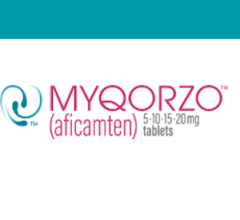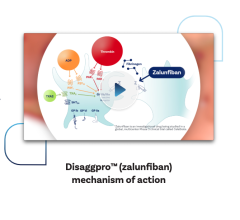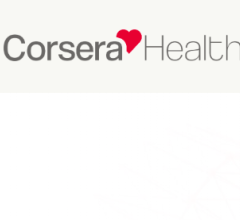
Southwest Mississippi Regional Medical Center in Macomb, MS purchased computers on wheels for its nursing staff several years ago. However, due to small patient rooms it was difficult to maneuver them and the tight space frequently meant the COW served as a physical barrier between the clinician and the patients. As a result most nurses abandoned them.
When the hospital looked at bar-code systems in 2002 and 2004 this issue was in the back of the mind of Katie McKinley’s, assistant administrator, nursing services, Southwest Mississippi Regional Medical Center. Both times she said the hospital decided not to adopt the technology because most vendors required a cart-mounted unit. She said the cost to implement those bar coding systems was estimated to be around $500,000.
“That’s a lot of money knowing the compliance would be so low,” she said. “I don’t want to spend that kind of money if the system will not be used by the nurses.”
As an alternative to using a cart-based system, McKinley was intrigued when she heard about the hand-held CAREt system made by IntelliDOT. It uses a small hand-held device with a built-in bar-code reader that can verify orders from the central pharmacy, verify the patient and check for potential drug interactions or errors. The devices connect via WiFi network to the hospital’s computer system, where more detailed CAREt information and data entry can be accessed using a computer terminal.
The device is simple and looks like 1970s calculator. Its initial appearance made McKinley wonder if it was so simplistic it would actually work to aid patient safety or integrate into the hospital’s EMR system. She was happy to find it fit perfectly into nurse’s workflow and quickly gained acceptance when the system proved itself and helped nurses avoid drug errors.
“It is designed for the end user,” McKinley said. “It is not cumbersome, it does not act as a barrier and it is as simple to use as it looks. The reason we chose this system is because it is small and fits in the nurses coat pocket and it can be used in one hand.”
The medical center implemented CAREt in the fall of 2006, and now uses about 150 devices in nearly all its departments. McKinley said the remaining implementation areas are in the ER and OR.
Each nurse is issued a CAREt device, while a second one sits in a recharge cradle ready for the next shift. A session begins with a nurse scanning a bar code on their ID tag. Physician orders are real-time accessible on the device so the nurse can put together the medications needed for each patient. The nurse scans the bar code on the patient’s ID wristband and then scans bar codes on the package of each medication to be administered. If drugs scanned do not match the patient, if the dose is wrong or may cause a potential interaction with other drugs the patient is taking, the device will not continue until the nurse has acknowledged the alert.
“This system shows us how many things we would have missed,” McKinley said.
She described two instances where nurses walked into the wrong room and CAREt caught the mistake when the patient wrist bands were scanned and the drugs the nurses had did not match those prescribed for the patients. She said the system also serves as a double check on orders sent from the central pharmacy.
“We now have much safer medication administration because of the implementation of the CAREt,” McKinley said. “It’s a wonderful thing. A lot of the staff now say they don’t want to give medications until the pharmacy has entered the order into the CAREt system, because they have seen the device catch mistakes.”
Unlike the old COWs the staff refused to use, she said CAREt compliance is at 96 percent.
The CAREt device will alert nurses if a medication has not been delivered to a specific patient at a specific time. McKinley said her system is set up to alarm when administration is 15 minutes overdue. She said the feature has helped some nurses with their time management.
If a new order comes in, or if an order is canceled, the system will automatically reflect it on the CAREt device. The wireless connection also connects nurses directly to the central pharmacy so if a drug is missing from an order, a bar code can be scanned to immediately alert the pharmacy of a missing medication and request a replacement.
The software uses a drug database to check for potential drug errors, which IntelliDOT said is updated monthly.
The previous system the hospital used for medication documentation required clinicians to enter administration times into the computer, but sometimes entries were forgotten about at shift changes, during emergencies or when nurses were busy. As a result, the hospital frequently credited patient accounts for medication it could not prove was administered. The CAREt system documents all the drug information automatically for billing purposes. McKinley said the system has also helped increase Medicare and Medicaid reimbursements, because the system documents compliance with best practices standards, such as the administration time for prophylactic antibiotics prior to surgery.
IntelliDOT also offers the CAREt Vital Signs Collection (VSC) System using the same hand-held device to electronically document patient vital signs at the bedside.
About Katie McKinley:
Katie McKinley is a nurse leader in patient safety and workflow process improvement. She is the assistant administrator/CNO for Southwest Mississippi Regional Medical Center. McKinley has more than 22 years professional nursing experience, including seven years of progressive management, three years as a nursing instructor, and more than 12 years as an adult critical care nurse in both Southwest Mississippi and Louisiana. Other nurse leadership roles include active membership in Mississippi's Organization for Nurse Executives, Mississippi Nurses’ Association, and American College of Health Care Executives, as well as being a member of several health care advisory boards within her community.
For more information: www.smrmc.com, www.intellidot.net


 January 28, 2026
January 28, 2026 









